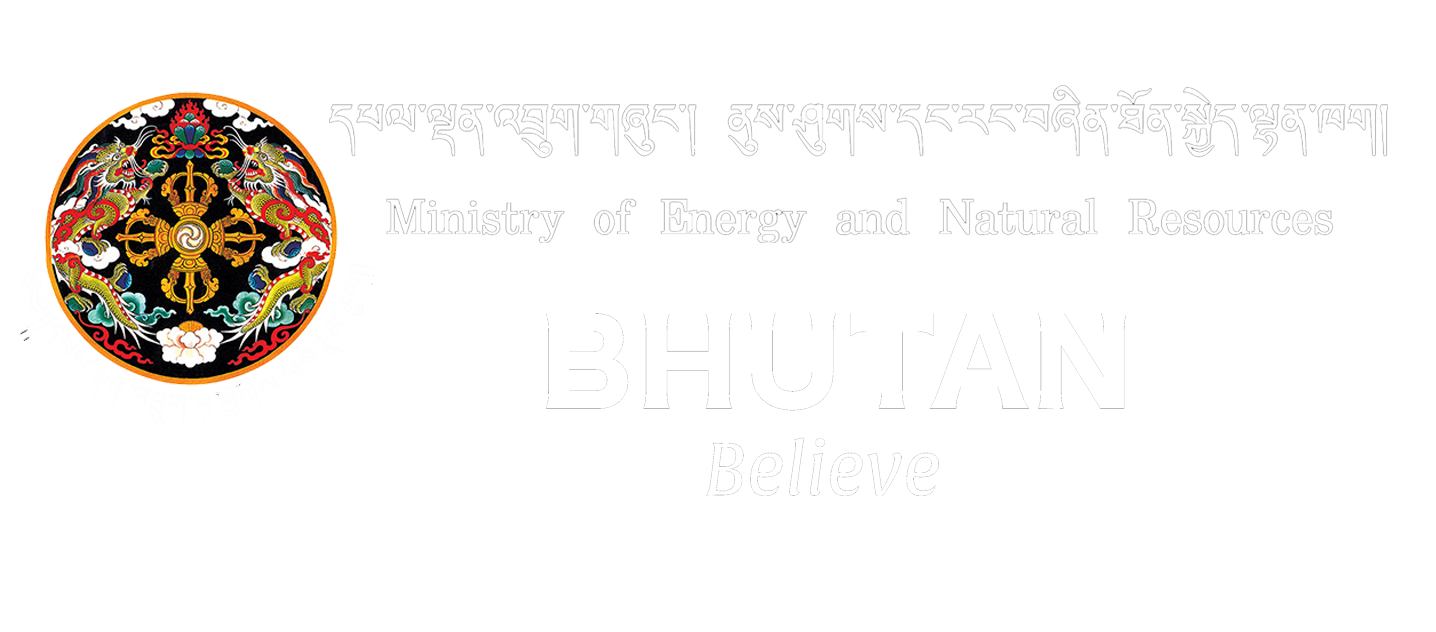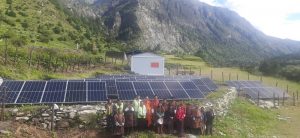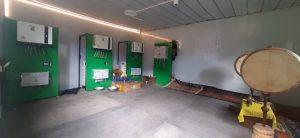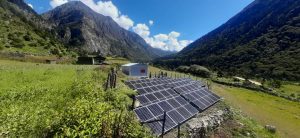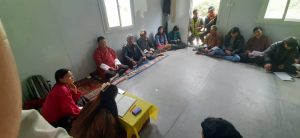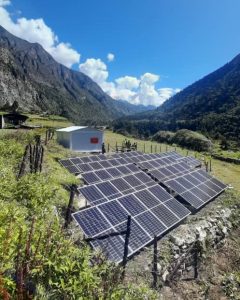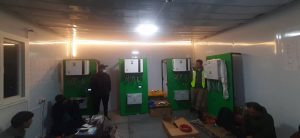Shangsa, one of the remotest communities in Lunana Gewog situated at an elevation of 3,600masl, has taken a significant step towards sustainable development. On August 20, 2024, Shangsa became the first village among 13 unelectrified villages in Lunana to receive a clean and reliable source of energy powered through a newly installed 33kWp solar photovoltaic mini-grid system.
The 33kWp solar mini-grid plant is implemented by the Department of Energy, Ministry of Energy and Natural Resources, under the funding support of Bhutan for Life (BFL) and RGoB at a project estimated cost of Nu. 21.1 Million. The scope of works for supply, installation, transportation and testing & commissioning was executed by M/s JB Solar Solutions (Contractor) on 13.11.2023 and officially handed over to the Department on 20.8.2024. The solar mini-grid plant is estimated to generate approximately 40.70MWh of energy per annum and benefit 11 households in Shangsa by providing clean, reliable and renewable energy.
Throughout the project implementation, the entire community was actively involved in construction, installation, testing and commissioning of the solar mini-grid plant and the Contractor has imparted training to the community for operation and maintenance of the plant. This approach aimed to effectively transfer both theoretical knowledge and practical skills while fostering a sense of ownership over the plant. To ensure the plant’s sustainability, it has now been handed over to the community, with minimal monthly energy bills collected to support its seamless operation and maintenance.
Prior to the Project intervention, the community had to depend on firewood and LPG for cooking and heating while lighting was provided with a standalone (ranging from 50 to 100 watts) solar home lighting system. However, these hurdles are now eliminated with the commissioning of the solar mini-grid. The plant will immensely benefit the community through the replacement of firewood for meeting energy demands. Furthermore, people can reap the benefits of improved health, hygiene and more family time as a result of the project.
The successful implementation of this solar mini-grid marks the beginning of a broader effort, with more villages in Lunana planned for reliable electrification in the coming years. The Department is actively seeking funding support from various donors to complete the last-mile connectivity in these off-grid villages. With continued support and investment, the remaining unelectrified communities will soon experience similar benefits, paving the way for sustainable development across the region.
